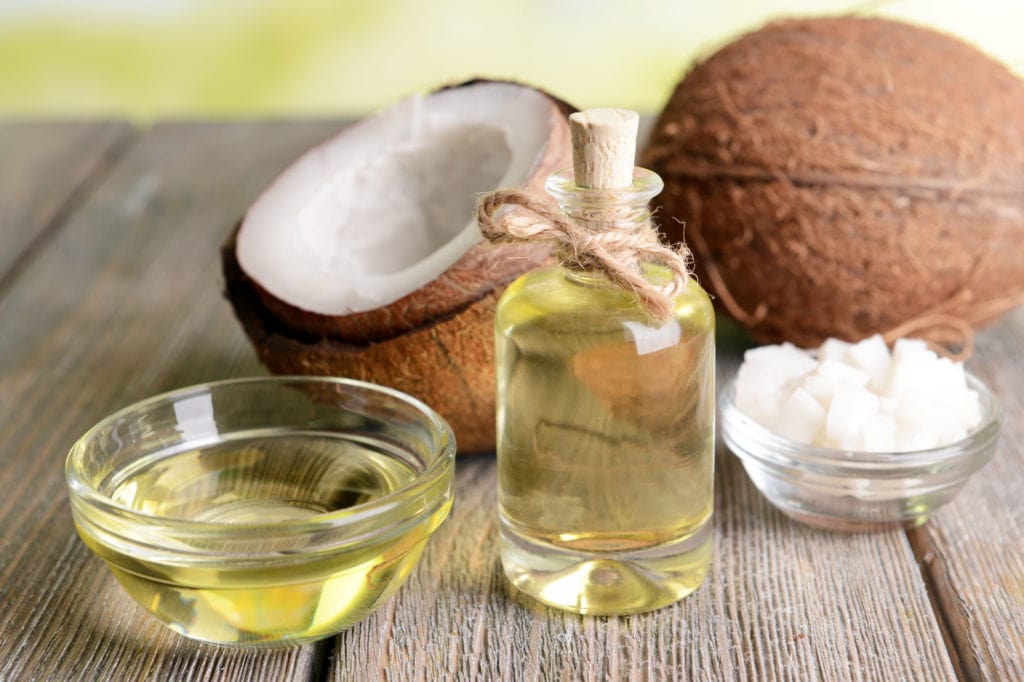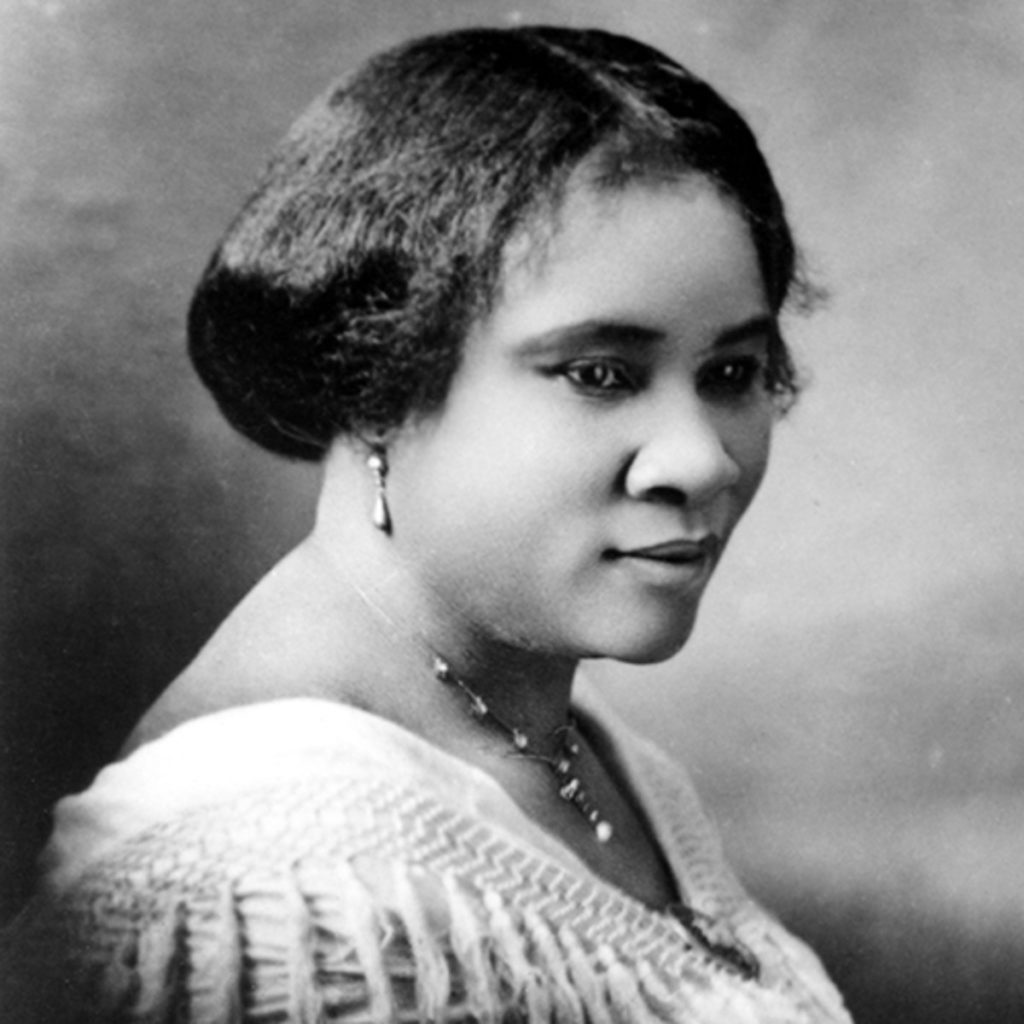Ladies and gentlemen, step right up to experience Madam CJ Walker and her Wonderful Hair Grower.
The most successful entrepreneurs take charge of a problem and deliver a proven solution. And until the early 1900s, famous business owners had one thing in common—they were all men. However, one self-driven, hard-working African-American woman was about to shake things up and build a multimillion-dollar haircare empire in the process.
Growing Up in Extreme Poverty
Sarah Breedlove, now known as Madam C.J. Walker, entered the world on December 23, 1867, in Delta, Louisiana. Her parents, Owen and Minerva, were both former slaves. Sarah was the youngest of five siblings, and she was the only one born a free individual. However, freedom didn't mean life was easy.
Sarah certainly didn't grow up with a silver spoon in her mouth. Instead, she understood struggle and poverty. She lived on a cotton plantation. Even though emancipation technically freed her parents, they both still worked the fields as sharecroppers.
Her life was about to take a sudden, cruel turn.
When Sarah was six, her mother died suddenly, and her father passed away just one year later. This unexpected turn of events made Sarah an orphan at the young age of seven. She moved in with her older sister, Louvenia, and her husband. Sarah continued working in the cotton fields, but she longed for something better.
Louvenia's husband—Sarah's brother-in-law—was abusive. Looking for a way to escape the daily mistreatment he doled out, Sarah decided to marry her first husband, Moses McWilliams. She was only 14. The couple had one daughter, Lelia (later renamed A'Lelia Walker), but marital bliss was short-lived. In 1887, Moses died, and Sarah became a widow.
Manual Labor, Hair Loss, and a $1.25 Launch

After her husband's untimely death, Sarah moved to St. Louis to be closer to her brothers. All four brothers were barbers—a career choice that would be profoundly ironic in a few more years. She found work as a washerwoman, earning a measly $1.50 a day. But the money was enough to send her daughter to the local public school.
Although she made enough to survive, Sarah didn't want to live in poverty forever. She married her second husband, John Davis, in 1894. Once again, this marriage wouldn't last. Davis was unreliable and unfaithful—a combination Sarah couldn't accept. She was still working long hours doing backbreaking manual labor. At the age of 35, she realized it was time to leave. As she told the New York Times in 1917:
"As I bent over the washboard and looked at my arms buried in soapsuds, I said to myself, 'What are you going to do when you grow old, and your back gets stiff? Who is going to take care of your little girl?'"
After divorcing Davis, Sarah developed a new problem—hair loss.
She began searching high and low for remedies to help regrow her hair. Sarah tried every concoction and snake oil treatment out there, but nothing worked. Instead of giving up, she started creating and testing her own remedies. Much of her inspiration came from a dream.
"A big black man appeared to me and told me what to mix up for my hair. Some of the remedy was grown in Africa, but I sent for it, put it on my scalp. And in a few weeks, my hair was coming in faster than it had ever fallen out."
Around this time, Sarah packed up her daughter and moved to Denver, Colorado, to be closer to her sister-in-law and nieces. She also met her third husband, Charles Joseph Walker.
Charles Joseph supported his wife's entrepreneurial endeavors. He even encouraged Sarah to sell her haircare treatment to the public. Shortly after getting married, Sarah adopted the moniker Madam C.J. Walker. With her husband's advertising expertise and a $1.25 investment, she launched Madam Walker's Wonderful Hair Grower.
"I got my start by giving myself a start."
Controversy Surrounding the Formula

Did Madam C.J. Walker really invent the Wonder Hair Grower formula on her own? While diehard fans say yes, others question the story. Before opening her business, Walker met fellow haircare entrepreneur, Annie Malone.
Malone hired Walker to sell her products door-to-door. The biggest seller was—you guessed it—a hair growth treatment. Much like Walker's Wonderful Grower, Malone's product also contained sulfur and petroleum jelly.
Were the recipes similar? Perhaps, but those ingredients were common in many different hair care products. Walker put an end to the plagiarism allegations, however. She claimed her proprietary blend of precipitated sulfur, beeswax, petrolatum, coconut oil, copper sulfate, and a violet extract was more effective than Malone's.
"There would be no hair growing business today had I not started it."
While Malone's recipe may have inspired Walker, the competing products were not the same. The women remained rivals in the haircare industry—and throughout history.
The Rise of Madam C.J. Walker
As Madam C.J. Walker's husband predicted, there was an eager audience for her Wonderful Hair Grower. She began traveling throughout the South, selling a full range of products, known as the Walker System. It wasn't long before sales skyrocketed.
When did Madam C.J. Walker start her business? In 1908, she opened the Lelia College of Beauty Culture in Pittsburgh. Two years later, the Madam C.J. Walker Manufacturing Company incorporated in Indianapolis, where she also opened the brand's first factory. An investment of $10,000 made Walker the sole shareholder of her company.
The brand gained traction among African-American women. And the secret to her success? The Walker Agents. This team of 40,000 specially-trained employees eagerly promoted the product in established black-owned businesses across the region.
But as Walker's business gained notoriety, her third marriage began to crumble. She divorced Charles Joseph in 1912.
A Fortune Built on Pennies

Even though Walker earned pennies in her early years as a washerwoman, she compensated her employees a lot better than that. Harvard professor Henry Louis Gates, Jr. told Time Magazine in 1998, "At a time when unskilled white workers earned about $11 a week, Walker's Agents were making $5 to $15 a day, pioneering a system of multilevel marketing that Walker and her associates perfected for the black market. More than any other single businessperson, Walker unveiled the vast economic potential of an African-American economy, even one stifled and suffocating under Jim Crow segregation."
Building an empire wasn't easy. Walker faced ridicule, racism, and sexism at nearly every turn. Instead of falling prey, she broke through every glass ceiling before her. "I know how to grow hair as well as I know how to grow cotton. I have built my own factory on my own ground."
This unique and uplifting business model—which mimicked the style of MaryKay saleswomen—helped Madam C.J. Walker Manufacturing Company rise to the top. By the last year of Walker's life, sales surpassed $500,000—an impressive ROI for a tiny $1.25 investment.
When and Where Did Madam CJ Walker Die?
Unfortunately, Walker didn't get to live much longer to enjoy the fruits of her labor. During the last few years of her life, she suffered from multiple health ailments. Doctors advised her to slow down her work schedule, but instead, she increased her speaking engagements and workload.
Eventually, working around the clock caught up with Walker, and she was unable to recover. She was only 51 when she passed away in her Irvington, NY home on May 25, 1919. Her death certificate listed kidney failure and complications from hypertension as the cause of death.
How Much Money Did Madam C.J. Walker Earn?
At the time of her death, Walker had a net worth of $600,000—the equivalent of around $8 million today. The Guinness Book of World Records recorded Walker as the first female self-made millionaire in America.
Walker wasn't shy about spending her hard-earned money. She owned several homes, including her primary residence in Irvington, known as Villa Lewaro. The 20,000-square-foot mansion featured 34 rooms, Italian Renaissance architecture, and a $100,000 price tag. The home became a national historic landmark in 1976. In addition to Villa Lewaro, Walker also purchased properties in Harlem, Chicago, Pittsburgh, and St. Louis.
Madam C.J. Walker, the Philanthropist

Growing up in poverty left a lasting impression. As much as Walker enjoyed treating herself, she also loved helping others even more. She once told Booker T. Washington, "I am in the business world—not for myself alone—but to do all the good I can for the uplift of my race." Some of her most notable philanthropic moments include:
- Paying the tuition for six African American students at Tuskegee Institute
- Donating $5,000 to the NAACP as a supporter of the anti-lynching movement
- Giving money to Alpha Home, a retirement center for African-American women
- Helping to build a black YMCA in Indianapolis YMCA
- Financially supporting the restoration of Frederick Douglass's home in Washington
- Bequeathing two-thirds of her future net profits to charity right before her death
Walker created a legacy of giving—both in her professional and personal life. She was a fair employer who practiced business philanthropy in a way that was unheard of at the time. Other businesses should take a page out of Walker's business model and take action on the social injustices in the world. As Philanthropy Women reported, "Instead, corporations have to step up, put their money where their mouths are, and actively, publicly, and loudly fund organizations that empower underserved communities, particularly women and girls of color."
What Happened to Madam CJ Walker's Company?
The Madam C.J. Walker Manufacturing Company continued to operate without its beloved owner for many more decades. Her daughter, A'Lelia Walker, acted as president until her death in 1931. Even after her passing, the brand remained popular and in-demand. In July of 1981, operations finally ceased.
Countless women refused to forget Walker's legacy. Sundial Brands—which owns Shea Moisture and Nubian Heritage—purchased Madam C.J. Walker Enterprises in 2013. The company relaunched exclusively in Sephora stores under the name Madam C.J. Walker Beauty Culture.
Note: As of the writing of this article, Sephora no longer appears to carry Madam C.J. Walker Beauty Cultureproducts. Much to the dismay of faithful customers, the brand has seemingly gone silent on social media.
Netflix and Chill with Madam C.J. Walker?

In 2020, Netflix released a new series, "Self Made: Inspired by the Life of Madam C.J. Walker." The Madam C.J. Walker Netflix series portrays the entrepreneur's rise from poor washerwoman to self-made millionaire. Although based on a true story, producers fictionalized some of the stories and characters for entertainment purposes.
Octavia Spencer plays the title role of Madam C.J. Walker. But she wasn't the studio's first choice. Initially, producers suggested Halle Berry for the part, much against the wishes of Walker's great-great-great-granddaughter, A'Lelia Bundles. As she recalled to OprahMag.com, "I said she's a really great actress, but she doesn't look anything like Madam Walker. And that person said to me, 'Most people don't know what Madam Walker looks like, so it doesn't really matter.' And I said, 'You know the people who do know what Madam Walker looks like would, and I care about those people.'"
The series aired on March 20, and critics were quick to give their opinions. Roger Ebert rated the show 3.5 stars, calling it "ready for binge-watching." Critics on Rotten Tomatoes weren't so quick to praise the series, giving it only 68% on the Tomatometer.
Will there be a second season? Although inspiring, "Self Made" is only a 4-part miniseries, and there are no plans to review the show.
Inspiration, Madam C.J. Walker Style
Those who worked for Madam C.J. Walker remember her as a tough yet caring boss. Inspiring others was always her missions—and these quotes will hopefully inspire you to follow in her footsteps:
- "I am not ashamed of my past. I am not ashamed of my humble beginning."
- "If I have accomplished anything in life, it is because I have been willing to work hard."
- "I want you to understand that your first duty is to humanity. I want others to look at us and see that we care not just about ourselves but about others."
- "Perseverance is my motto."
- "I had to make my own living and my own opportunity. But I made it! Don't sit down and wait for the opportunities to come. Get up and make them."

Madam C.J. Walker, a Heroine of Capitalism
Growing up in poverty didn't stop Walker. If anything, it encouraged her to reach for the stars. And she enjoyed every minute of her ride to the top. Her self-made story proves that anyone can beat the odds thanks to capitalism. She took charge of a problem—one that was personal to her and many other women—and delivered the best product on the market.
Even after earning a fortune, Madam C.J. Walker still wanted to help lift other Black women out of poverty. She never forgot her roots. Her rags to riches story still remains one of the most inspiring American-success stories of all time.
Capitalism made Madam C.J. Walker a legend. Now it's time to take the reins and create your own legacy. No matter if you're male or female, black, brown, or white, there is room for your innovations in a capitalistic society. The world needs more entrepreneurs like yourself. Looking for some guidance? Check out this free 10-part miniseries as you begin your journey. You may become the next 7-figure success story.












